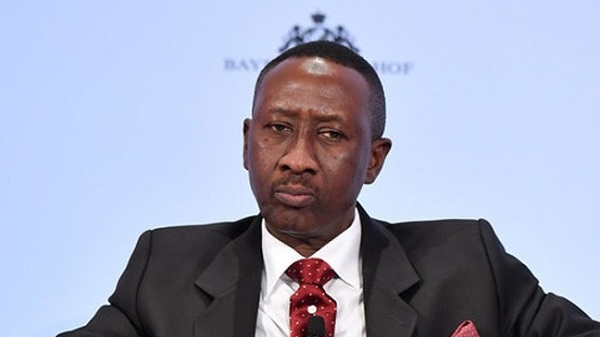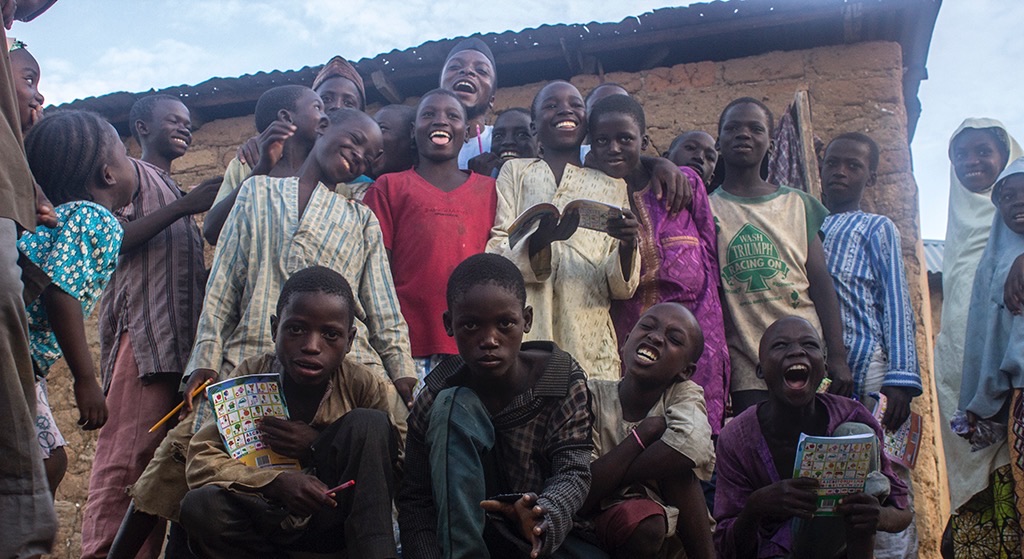Of recent, a preponderant number of Northern elite have been talking about the social and security threats posed by the army of out-of-school children otherwise known as the Almajiris in the North and the nation in general. Prominent Northerners, including the deposed Emir of Kano, Sanusi Lamido Sanusi, have expressed concerns over the menace that has denied so many children in the region their rights to basic education.
Sometime ago, Katsina State governor, Aminu Masari, disclosed that the horrors locked in the Northern forest were as a result of children denied education. Similarly, Kaduna State Governor Nasir El-Rufai and his counterpart in Kano, Abdullahi Ganduje, have taken steps to ensure that children in the states are enrolled in school. For keen followers of education matters in Nigeria, it is no longer news that the north harbours majority of out-of-school-children in the country. As of December 2018, there were 13.2 million out of school children in Nigeria and majority of them were said to be in the North, according to a survey conducted by the United Nations Children’s Education Fund (UNICEF). Many of these children have been reportedly involved in the spate of kidnappings and banditry across the country.
Just this last Tuesday, the Senate also added its voice to the call for solution to the problem of the Almajeris in the north. A member of the upper chamber, Senator Adamu Aliero, representing Kebbi Central, had sponsored a motion on “the need to integrate Almajiri into modern system of education in Nigeria.’’ Subsequently, the Senate issued a three-point resolution, asking the Federal Government to among others, upgrade the existing Almajiri model schools in the North and build more in the region to increase school enrolment. Prior to this, the President of the Senate, Ahmad Lawan, had noted that out-of-school children was a big challenge facing Nigeria as a nation.
I wouldn’t know why Senator Aliero decided to sponsor a fresh motion on the integration of Almajiri into modern system of education in Nigeria, because for me, there is really no basis for it. First, many states in the north where Almajiri is a problem, seem to have an integrated Almajiri school system in place already. In many of the states, the school curriculum is designed to take care of the Almajiri at basic education level. Whether this is adhered to is a different issue entirely. Besides, eight years ago, precisely April 10, 2012, the Federal Government launched a project aimed at integrating the Almajiri education into modern system of education in the northern region. That project cost the Federal Government a whopping N15bn under the Goodluck Jonathan administration. The Federal Government built over 400 schools in the North at the time. The schools, popularly known as Almajiri schools, were to provide both Islamic and Western education to the children. Some of the schools were equipped with language libraries, recitation halls, classrooms, dormitories, clinics, vocational workshops and quarters for teachers among others. Unfortunately, this huge investment is yet to bring any tangible dividend as the schools have either been abandoned or converted into other uses.
Advertisement
In Zamfara State, for example, the Almajiri schools were converted into conventional secondary schools. The school in Talata Mafara local government, according to a Daily Trust report, was converted into Command Science Secondary School while the one in Damba was converted into Government Girls Secondary School. The situation is not particularly different in Kaduna, Zamfara, Sokoto, Bauchi and Kebbi states. The states probably saw the Federal Government largesse as free facilities that could serve better purposes than the trivial issue of Almajeri.
Justifying the conversion of the facilities, one of the commissioners of education in the region in an interview with Daily Trust, said, “ Who is Almajiri if I may ask? I think Almajiri means student. Let me tell you in our educational system we have curriculum designed to take care of Almajiri at basic education level. In our state we have integrated Almajiri school system, our curriculum is reflecting that. It was a decision we had to take to meet the objectives of establishing those places and we are still giving them education at basic level.”
Now, here is the puzzle. If the states in the North have integrated Almajiri school system, how come we still find so many children begging on the street? Could it be a problem of lack of political will to fully implement existing policies or a ploy by some people to keep these children out of school in order to make them ready tools in their hands at any time of need? It is important to understand the real reason behind the existence of child beggars in the North despite the existing policies aimed at curbing the practice. This will help in solving the problem. The Senate’s resolution that the Federal Government should build more Almajiri schools is another way of throwing money at problems which has been a common practice in this part of the world. Of course, that has never worked and it will never work!
I know some people would say that the Almajiri system is rooted in some deep cultural and religious practices in the north, but overtime, we have discovered that this can’t be true. Otherwise why is it that you don’t find children of the Northern elite begging on the streets? Are we saying these kids from rich backgrounds are less Northern or less religious? Let’s be frank with ourselves, the practice of sending the male children to Arabic schools without adequately catering for their needs has nothing to do with Islam. If it does, child beggars would have filled the major cities of other Islamic countries in the world. Even here in Nigeria, child beggars aren’t even popular on major streets in the Southern part of the country.
Advertisement
So, if the north is truly interested in ending the problem of Almajiris, its leaders should be more committed to implementing the existing national policies on education. As it is, it is a crime punishable by law, for any Nigerian child to be denied nine years of continuous basic education, according to UBEC Act. Let them start from there. The states should ensure that this law is implemented to the letter and that defaulters receive appropriate sanctions. Of course, before they can do this, they must have accepted the fact that they are responsible for providing quality education for their people. A situation where the task of ending a regional problem is constantly being transferred to the Federal Government is not healthy in a federal system of government. For instance, what is the business of the Federal Government with either upgrading existing Almajiri model schools or building more in order to increase school enrolment. Are the senators asking the Federal Government to invest billions of Naira again in the Almajiri project after spending N15bn that didn’t yield any commensurate result? What is the guarantee that such investment won’t be a waste of resources again?
The truth is, the north cannot continue to depend on the Federal Government to solve its regional problem except it does not want to be fair to other parts of the country. As it is, there are few basic schools, if there is any school at all, in the southern part of the country that can boast of the kind of the state-of -the-art edifices the Federal Government had built for the Almajeris in the North. If these schools are abandoned or left to decay, should it be the responsibility of the Federal Government again to upgrade them? What are the states doing? After all, education is on the concurrent list and the Federal Government is already doing its bit by funding basic education through the Universal Basic Education Commission.
Of course, I agree with the lawmakers that the Almajiri system is an abuse of the rights of children. It is wrong and callous of anyone to dump their children on others and relinquish total responsibility over them all in the name of wanting them to be taught the Islamic injunction. However, the problem is likely to get solved when the Northern governors take ownership of their challenge. I believe states like Kano and Kaduna will soon begin to witness a rise in school enrolment figures if they remain committed to their policy of compulsory education for every child in their states. We cannot continue to invest the resources belonging to the entire nation in solving a regional problem. Besides, we should be careful not to turn this into another contract scam where some politicians will take advantage of a bad situation to enrich themselves.
The various state houses of assembly in the north should make the problem of Almajiri a legislative agenda and find ways of solving it. This shouldn’t be the responsibility of the Ninth Senate. It is high time the Northern governors accepted that Almajiri is a regional problem. It is not a national problem. Agreed the negative impact of the system cannot be restricted to the North alone, but this shouldn’t be a reason to blackmail or force the Federal Government to keep committing scarce national resources into solving a regional malady.
Deji-Folutile is the editor-in-chief of franktalknow.com and member, Nigerian Guild of Editors. Email: [email protected]
Advertisement
Views expressed by contributors are strictly personal and not of TheCable.
Add a comment






